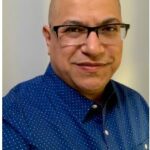El Futuro’s Immigrant Mental Health Solidarity Network Uses a Community-Driven Approach to Support Diverse Immigrant Groups
In the heart of North Carolina, El Futuro is spearheading a transformative initiative to address the mental health needs of immigrant communities. Initially conceived as the Immigrant Mental Health Policy Solidarity Network in partnership with the NC Institute of Medicine, El Futuro’s journey has evolved far beyond policy recommendations toward becoming a beacon of community mobilization and solidarity.
The Mental Health Needs of Immigrant Groups
Immigrants in North Carolina, particularly those who are low-income, confront a multitude of mental health challenges exacerbated by socioeconomic disparities, acculturation stressors including discrimination, and the COVID-19 pandemic. The alarming rates of depression symptoms among adults reflect an urgent need for accessible and culturally sensitive mental health services. Compounding this issue is a critical shortage of multilingual mental health professionals and the declining availability of accessible treatment options, further widening the gap in care accessibility.
The Community-Driven Approach
El Futuro’s approach to addressing these challenges is rooted in community-led mobilization and empowerment. Their mission is centered around meaningful engagement and supporting leaders within immigrant communities. One key strategy El Futuro implements is compensating community leaders for their invaluable contributions. Similarly, El Futuro recognizes that additional resources – such as childcare, transportation, and expert translation services to facilitate equitable participation – will be essential to future offerings to ensure accessibility and inclusivity. Through community organizing and psychoeducation, El Futuro strengthens self-efficacy and empowers leaders to advocate for their communities effectively.
Navigating Nuances and Expansion
Throughout this work, it is important to recognize that no community is homogenous and, therefore, address the nuances within immigrant groups. An advisory council comprising individuals from diverse backgrounds ensures that a broad spectrum of distinct cultural perspectives is represented. Key informant interviews and community engagement initiatives are allowing El Futuro to shape initiatives tailored to the specific needs and barriers faced by different immigrant groups.
Some examples of recent insights from these interviews include:
- The ways the ‘language of health’ shifts from culture to culture. For some immigrant groups, the idea of mental health doesn’t resonate as clearly, since they focus more on emotions and feelings than thought processes.
- The nuances of subcultures in relation to mental health. For example, the farmworker community has a much less permanent relationship with mental health. Since their lives and livelihoods are often transient, feelings of impermanence often create a barrier to prioritizing mental health, as they often view their current state as only temporary.
- Many immigrant groups face challenges when navigating a cultural shift. For instance, elders in many African countries are respected for their years of wisdom, but this is rarely the case in American culture. The sharp cultural contrast can lead to feelings of isolation and displacement because the elders’ role in society is no longer held in such high regard.
In advocating for policy change and holistic support for immigrant mental health, El Futuro’s growing Immigrant Solidarity Network focuses on progress over final outcomes. By asking community leaders and program staff what they are learning from participants, El Futuro is able to integrate these valuable lessons along the way. This process is ongoing and continues to evolve as the work continues.
How to Best Support Immigrant Mental Health Initiatives
- If you are interested in supporting immigrant mental health initiatives, a recap of helpful strategies for consideration includes:
- Immigrant community leaders too often work low-wage, hourly jobs. Time spent contributing to community efforts can result in forfeited wages for the family. Any initiative that asks immigrant community leaders to come to the table to share insights and recommendations must include funding for compensation for this dedicated time and expertise.
- The development of steering committees and advisory councils from within immigrant communities can ensure that diverse, multicultural perspectives are considered.
- Consider using mixed-methods approaches to gain insight from immigrant community leaders and address the varying needs and barriers among different groups.
- Community mobilization for improved immigrant mental health involves a spiral learning process in which desired outcomes can change over time. Be sure to include adequate support for robust evaluation of project learnings. These are often where the true impacts lie.
- Follow El Futuro on social media and share with your networks. (@ElFuturoNC)
Want to get involved? Email Estefania at ecastro@elfuturo-nc.org. Learn more about El Futuro and its initiatives by visiting elfuturo-nc.org.
Together, we can build a future where immigrant communities – of all backgrounds – receive the support and care they deserve.


 Alvely Alcántara, LCSW
Alvely Alcántara, LCSW Rossy C. Garcia, MEd
Rossy C. Garcia, MEd  Katy Sims, MD
Katy Sims, MD  Everardo Aviles, LCSW, LCAS (Eve)
Everardo Aviles, LCSW, LCAS (Eve) As a medical anthropologist and social work researcher, Dr. Gulbas’ research embodies interdisciplinarity through the integration of applied theories of health and human development with qualitative and ethnographic methodologies. Her work seeks to understand how people—children, families, and providers—navigate complex sociocultural landscapes in the pursuit of mental health. Most of her work, to date, focuses attention on developing more robust interpretations of suicide risk. With funding from the National Institutes of Mental Health, this body of research has contributed to advancements in theoretical and empirical knowledge of the broader contexts within which youth suicide risk is situated.
As a medical anthropologist and social work researcher, Dr. Gulbas’ research embodies interdisciplinarity through the integration of applied theories of health and human development with qualitative and ethnographic methodologies. Her work seeks to understand how people—children, families, and providers—navigate complex sociocultural landscapes in the pursuit of mental health. Most of her work, to date, focuses attention on developing more robust interpretations of suicide risk. With funding from the National Institutes of Mental Health, this body of research has contributed to advancements in theoretical and empirical knowledge of the broader contexts within which youth suicide risk is situated.  R. Gabriela Barajas-Gonzalez is a developmental psychologist and an assistant professor of Population Health at NYU Grossman School of Medicine. Dr. Barajas-Gonzalez is the principal investigator of a study that examines the impact of immigration-related threat and stress on school communities. She earned a PhD in developmental psychology from Columbia University and hold a BA in human biology from Stanford University. Dr. Barajas-Gonzalez is the daughter of Mexican immigrants and a first gen college student.
R. Gabriela Barajas-Gonzalez is a developmental psychologist and an assistant professor of Population Health at NYU Grossman School of Medicine. Dr. Barajas-Gonzalez is the principal investigator of a study that examines the impact of immigration-related threat and stress on school communities. She earned a PhD in developmental psychology from Columbia University and hold a BA in human biology from Stanford University. Dr. Barajas-Gonzalez is the daughter of Mexican immigrants and a first gen college student. Dr. Parra-Cardona is an Associate Professor in the Steve Hicks School of Social Work (SHSSW) at the University of Texas at Austin. At the SHSSW, he serves as Coordinator for Mexico and Latin American initiatives. He also serves as Area Director for Research at the UT Austin Latino Research Institute. Dr. Parra-Cardona’s program of research is focused on the cultural adaptation of evidence-based parenting interventions for low-income Latinx populations in the US and Latin America.
Dr. Parra-Cardona is an Associate Professor in the Steve Hicks School of Social Work (SHSSW) at the University of Texas at Austin. At the SHSSW, he serves as Coordinator for Mexico and Latin American initiatives. He also serves as Area Director for Research at the UT Austin Latino Research Institute. Dr. Parra-Cardona’s program of research is focused on the cultural adaptation of evidence-based parenting interventions for low-income Latinx populations in the US and Latin America. Bianka Reese, PhD, MSPH is a research scientist and program evaluator specializing in adolescent and young adult sexual and reproductive health. Her previous research in the experiences of Latinx LGBTQ+ youth stems from her work as the Research and Evaluation Manager at SHIFT NC (Sexual Initiatives For Teens), where she led largescale evaluations of multilevel, community-based sexual health promotion initiatives and research projects aimed at elevating the voices of diverse youth in North Carolina. Dr. Reese is currently the Senior Research Strategist at Creative Research Solutions, LLC, an award-winning national evaluation, research, and assessment firm.
Bianka Reese, PhD, MSPH is a research scientist and program evaluator specializing in adolescent and young adult sexual and reproductive health. Her previous research in the experiences of Latinx LGBTQ+ youth stems from her work as the Research and Evaluation Manager at SHIFT NC (Sexual Initiatives For Teens), where she led largescale evaluations of multilevel, community-based sexual health promotion initiatives and research projects aimed at elevating the voices of diverse youth in North Carolina. Dr. Reese is currently the Senior Research Strategist at Creative Research Solutions, LLC, an award-winning national evaluation, research, and assessment firm. Tania Connaughton-Espino, MPH is an independent researcher focused on adolescent and young adult sexual and reproductive health. Her interest in the experiences of Latinx LGBTQ+ youth stems from her previous work with SHIFT NC (Sexual Initiatives For Teens), where she led the training and evaluation department, conducted capacity-building workshops for youth serving professionals including on the topic of how to be more affirming of LGBTQ youth, and from her extensive experience working with the Latinx population in NC.
Tania Connaughton-Espino, MPH is an independent researcher focused on adolescent and young adult sexual and reproductive health. Her interest in the experiences of Latinx LGBTQ+ youth stems from her previous work with SHIFT NC (Sexual Initiatives For Teens), where she led the training and evaluation department, conducted capacity-building workshops for youth serving professionals including on the topic of how to be more affirming of LGBTQ youth, and from her extensive experience working with the Latinx population in NC. Maru Gonzalez, EdD is an Assistant Professor and Youth Development Specialist in the Department of Agricultural and Human Sciences at North Carolina State University. Her areas of inquiry include youth development with a focus on activism, social justice, and the experiences of LGBTQ+ young people across familial, school, and community contexts.
Maru Gonzalez, EdD is an Assistant Professor and Youth Development Specialist in the Department of Agricultural and Human Sciences at North Carolina State University. Her areas of inquiry include youth development with a focus on activism, social justice, and the experiences of LGBTQ+ young people across familial, school, and community contexts.  Nayeli Y. Chavez-Dueñas, PhD
Nayeli Y. Chavez-Dueñas, PhD Hector Y. Adames, PsyD
Hector Y. Adames, PsyD